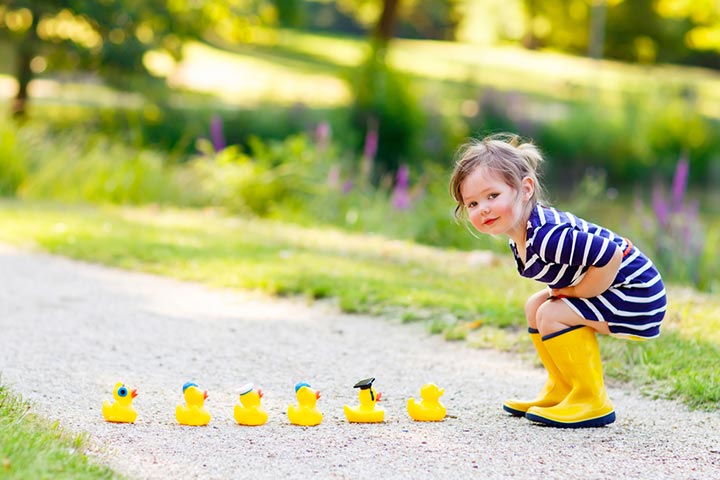
Image: Shutterstock
Your baby is your responsibility. One of the biggest worries parents have is wondering if their baby is reaching their milestones on time. After a baby is born, they make progress every week by small steps. It does not happen drastically, but you start to see changes in your baby and their development. Sure, you would have done your research beforehand, so you have an idea of what to expect. Plus, your doctor guides you through it. But being a parent, there are a few tricks that you can do to boost your child’s development in every stage. Scroll below to find out.
1. 0-3 Months
Place your baby on their tummy and shake a rattle or bell in front of them. Observe if they lift their head a little when you lift the rattle. Encourage them to do it. When they lie on their back, alternate between left and right and show them something so they can gently turn their heads. Make sure you do it slowly and ensure you don’t stretch it too further away.
2. 3-6 Months
Hold your baby close to your face and make direct eye contact with them. Talk to them while looking in their eyes and make facial expressions. Your baby might not be able to see you clearly yet, but they will pick up on your facial expressions and the sounds you make. Make eye contact throughout the process.
3. 6-9 Months
Start incorporating various activities into your daily routine with your baby. Play peek-a-boo, teach them different facial expressions, sing to them and keep talking to them. Your baby starts to understand you a bit more and will respond with sounds and simple gestures.
4. 9-12 Months
Introduce your baby to slightly more complex games. You could hide their toys that make a particular sound within your baby’s reach and ask them to find it. They would have to follow the sound and look for the toy. When they find it, clap and appreciate them.
5. 12-18 Months
Name every object you hold and show it to them. Speak to them slowly and ask them to guess what you’re holding. Introduce them to colors, shapes, and sizes. Allow your baby to play with them, observe them and ask them questions about the objects. Your toddler can also start putting their toys back in the toy box.
6. 18 Months-2 Years
Start using sentences with your toddler. Tell them to give you a specific object. You could say, “Please bring me the green plate”. Teach them the names of body parts.
7. 3-5 Years
Teach them sizes, order, arrangement, and sequence. Give them a set of pulses and tell them to separate them according to size or color. You could also ask them questions about their choices so they can explain them to you.
8. 6-12 Years
Introduce them to chores. It can be simple chores like setting the dinner table, making their bed, and filling water bottles. Teach them to clean up after themselves and make simple snacks like PB&J sandwiches. Don’t forget to appreciate their efforts.
9. 13-15 Years
You could start giving them allowance money for doing chores. Be careful while introducing money to them. You want to instill in them its importance and make them know that they have to earn it. When your kid becomes a teenager, they might want to shut you out but dedicate about 15-30 minutes every day after dinner to talk to them. Ask them about their day and anything else they’d like to share. Don’t correct them, judge them or try to advise them during this time.
Raising a kid can be tricky. It might seem like a tedious and terrifying task, but with the right knowledge and execution, you will be fine. Always remember that there are several parents just like you who experience similar problems. Don’t beat yourself up if you don’t live up to your standard. You’re doing the best you can.
Was this article helpful? Share it with parents and let them know they are not alone.





















